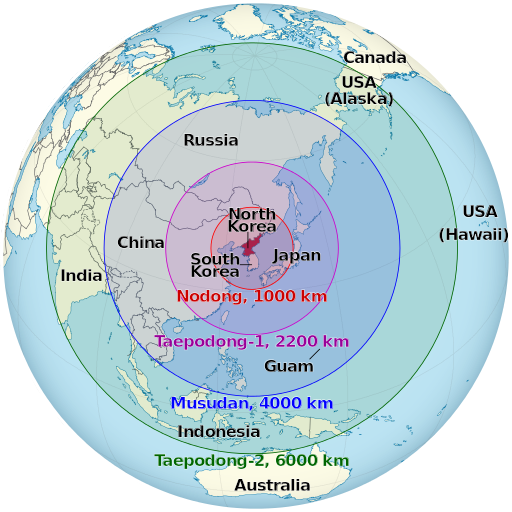In his weekly “Goldberg File” email, Jonah Goldberg explains why he is much more concerned about North Korean provocations and expostulations:
The problem — I fear — is that Kim Jong Un has himself been duped. I could very well be wrong, but my concern is that unlike his father and grandfather, he’s come to believe the propaganda. Like Hitler in the bunker ordering that non-existent armies be moved into position, I fear he doesn’t realize that his country is, militarily speaking, like a giant bee. It can deliver a horrible sting, but once it does, it will die.
I also think he’s more than a few fries shy of a Happy Meal. People used to say he spent time in the West and so he can’t be all bad or too crazy. I love this kind of horsehockey. You know who else spent time in the West? Lenin, Marx, the Ayatollah Khomeini, Pol Pot, Ho Chi Minh, Sayyid Qutb, and Michael Jackson just to name a few. Now Michael Jackson may not have been a mass-murderer or advocate of murder, but he was Coo-Coo for Cocoa-puffs. Why? Because from childhood on he lived in a bubble. My guess is that Kim Jong Un’s bubble has always been a good deal thicker than Michael Jackson’s — at least Jackson went on tour. I fear the only difference between King Joffrey in Game of Thrones and Kim Jong Un, is that Joffrey is better looking, albeit with more ridiculous clothing. I wouldn’t be surprised if Un has told his aides that if Obama attacks, “I’ll give him a red smile.”
I’m only partly kidding, but it wouldn’t surprise me all that much if a contributing factor to Un’s belligerence was the recent release of the Red Dawn remake on DVD. If you’re a crazy dude who spends his days in pajamas drinking Long Island ice teas in your bunker as Romanian prostitutes let you win at Call of Duty and Dennis Rodman texts you compliments, that movie might just be all the proof you need that the Americans understand what a threat North Korea is. The message of the film, in Nork-Crazy-Talk at least, is that Americans should keep fighting even after the North Koreans crush our military.
Never Again, Again and Again.
Even if we end up appeasing North Korea yet again, and we kick the can down the road yet again, something needs to be said that isn’t said — or at least appreciated — enough. North Korea is really, really, really, evil. And one day, after the regime is finally gone, historians will look back on the Hieronymus Bosch hell that North Korea has been for decades and condemn us all for letting it endure as long as we did. Forced abortions, mass starvation of whole generations of children, torture, oppression and institutionalized cruelty of every imaginable kind is what distinguishes Juche as an ideology.
I am not arguing for invading North Korea — not because it would be wrong to do so but because the price of doing so is just too high. If we could overthrow the regime with a snap of the finger, I would spend my days snapping my fingers until King Jong Un and his whole pajama-clad clan were hanging from their feet in the streets of Pyongyang. But costs and benefits must be considered in foreign policy, and the costs of deposing the band of murderers is just too high. That said, the costs of not doing anything are high too. But since we don’t feel them, we don’t pay them. Doing nothing probably means consigning at least another generation of children to grow up physically stunted and deformed from hunger and mentally stunted and deformed by institutionalized barbarism. That is, if they are granted the privilege of growing up at all.





